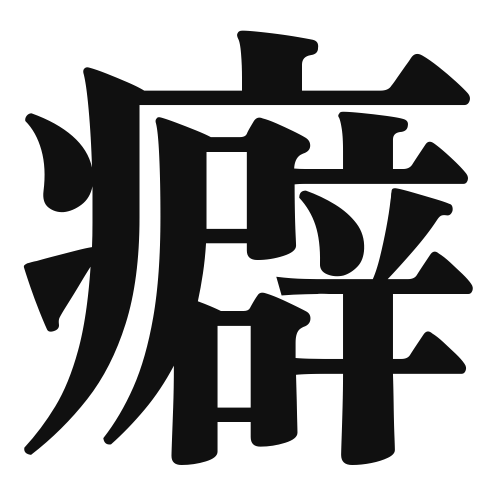1. Overview of Meaning
The kanji “癖” (kuse) refers to a habit or a quirk, often implying a peculiar or distinctive behavior that is characteristic of a person. It can also denote a tendency or inclination that may be seen as negative or annoying.
2. Formation and Radical
The kanji “癖” is a compound character (会意文字) that combines the elements of “毛” (hair) and “癶” (footsteps), suggesting a connection to something that is inherent or natural to a person. The radical of this kanji is “毛,” which relates to hair or fur, often symbolizing something that is innate or instinctual.
3. Examples of Usage
Common words and phrases that include “癖” are:
- 癖になる (kuse ni naru) – to become a habit
- 癖を直す (kuse o naosu) – to correct a habit
Example sentences in daily conversation:
- 彼はいつも同じ癖を持っている。 (Kare wa itsumo onaji kuse o motte iru.) – He always has the same habit.
- その癖を直した方がいいよ。 (Sono kuse o naoshita hou ga ii yo.) – You should correct that habit.
4. Synonyms and Antonyms
Similar kanji with related meanings include:
- 習慣 (shūkan) – habit (more neutral, often used for positive or neutral habits)
- 癖 (kuse) – habit (often implies a negative or annoying aspect)
Antonyms include:
- 規律 (kiritsu) – discipline (implying order and control)
5. Cultural and Historical Background
The concept of “癖” is deeply rooted in Japanese culture, where personal habits and quirks are often discussed in social contexts. It can reflect one’s personality and is sometimes viewed with affection or annoyance.
Proverbs and idioms related to “癖” include:
- 癖は直らぬ (kuse wa naoranai) – A habit is hard to change, emphasizing the difficulty of altering ingrained behaviors.
